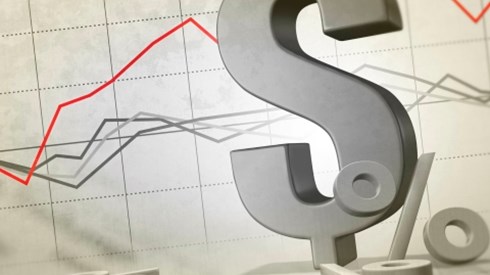COVID-19 Business Interruption Losses Would Dwarf Previous Black Swans

April 21, 2020

Potential business interruption (BI) loss estimates from the COVID-19 pandemic dwarf previous insurance industry "black swan" scenarios such as two Hurricane Katrinas in a single month. In fact, BI losses from the current pandemic would be nearer to five Katrinas in a month, according to an insurance industry economist.
Speaking during a recent Insurance Information Institute (Triple-I) webinar, Steven N. Weisbart, senior vice president and chief economist at the Triple-I, said, "The question then becomes 'Can the industry really handle losses caused by a pandemic?' And the answer is, 'No, it cannot.'"
The webinar provided an economic briefing on COVID-19's impact on the property-casualty insurance market, particularly with regard to business interruption and pandemics.
Insurance has never been able to underwrite a pandemic, said Sean Kevelighan, the Triple-I's CEO. "For times like these, it's essential that we look to government for assistance." Meanwhile, the insurance industry is doing what it can for its customers, he said, citing payment relief and refunds being offered by some insurers.
Retroactively forcing insurers to provide pandemic business interruption coverage that isn't provided in existing policies would threaten the industry's ability to meet its other promises to buyers, the speakers suggested. "Beyond such an effort being unconstitutional, it would cause irreparable harm to our financial stability," Mr. Kevelighan said.
According to Mr. Weisbart, policies like the widely publicized pandemic cancellation policy the All-England Lawn Tennis Club purchased for the Wimbledon tennis tournament are individually negotiated and not something that would be widespread.
Most of the discussions in legislatures about forcing insurers to pay pandemic-related business interruption claims focus on small-to-midsize enterprises, he said. "Risk managers at the larger companies … may negotiate or not coverage for this sort of claim," Mr. Weisbart said.
Michel Leonard, vice president and senior economist at the Triple-I, said, however, that one could probably assume most large companies face the same pandemic exclusions as their smaller counterparts and that policies like the one for the Wimbledon tournament are probably unusual.
Mr. Weisbart noted that the US gross domestic product (GDP) likely declined by 40 percent in March. Year-to-date, that represents a decline of about 7 percent for the full year, he said. When economists ultimately determine the beginning of the recession, they'll likely set it in late March or early April, according to Mr. Weisbart. "There is widespread belief that the second quarter will see a steep drop in GDP," he said.
"As a result of the onset of the recession, the property-casualty insurance industry will have effects that will be visible," said Mr. Weisbart. Nominal GDP will decrease in the second quarter and likely in the third and fourth quarters as well, he said. As economic activity decreases, the insurance industry's premium receipts will decrease even as they experience increasing claims as a result of the pandemic, particularly in workers compensation and health insurance.
The pandemic will cause claims to rise across most insurance lines, according to the Triple-I economist. The highest impact will be on workers compensation and health insurance, he said, with life, liability, and directors and officers lines experiencing a moderate impact and property and auto insurance experiencing a lower impact.
The anticipated lower impact on property and auto insurance is a reflection of early indications that stay-at-home orders are keeping many people out of their cars and off the road, reducing accidents and injuries, Mr. Weisbart said. Auto insurers are indicating they expect this to continue for the first 2 months of the second quarter and expect to return $10 billion in premiums to customers in response to reduced policyholder mileage.
The pandemic's ultimate impact on life insurers will depend on the number of working-age adults killed by COVID-19, Mr. Weisbart said. "In the 1918 Spanish flu, one of the signature aspects of that pandemic was that it went after people in the 25-to-45 age group to some degree," he said. COVID-19 doesn't seem to be following the same pattern, though there have been some in that age group who have been affected, Mr. Weisbart said.
Mr. Weisbart cautioned that a second wave of COVID-19 infections could extend the recession or cause a new one, increasing the pandemic's ultimate impact on insurers.
Mr. Weisbart stressed the importance of insurers' capital and surplus levels. "Surplus is designed to help insurance companies handle the promises they make in their policies," he said. "Changes in values of assets and changes in values of liabilities affect surplus."
While regulators set minimum levels of insurers' capital and surplus, rating agencies also have a significant impact on companies' surplus levels, Mr. Weisbart said.
Retroactively applying pandemic BI coverage to existing policies could cost the insurance industry from $150 billion to $400 billion and threaten the industry's ability to meet contractual obligations and likely eliminate business interruption coverage on all policies, Mr. Weisbart said.
Regarding the potential impact on reinsurers of forcing insurers to cover pandemic business interruption losses, Mr. Weisbart said, "The problem for reinsurance in regard to these kinds of claims is when you have a global pandemic the reinsurance companies are even more subject to threat than are companies in one country." Those reinsurers are subject to claims from around the world, he said.
But, the Triple-I economist noted, reinsurance policies have limits and there are internal restrictions within the policies, which is why primary insurers are concerned that their own policies contain exclusions for exposures like pandemic-related business interruption.
No single country's legislature could force reinsurance to be expanded to cover pandemic business interruption claims, he said, though if insurers were forced to cover the exposure, some of the losses would be collected at the reinsurance level.
April 21, 2020



